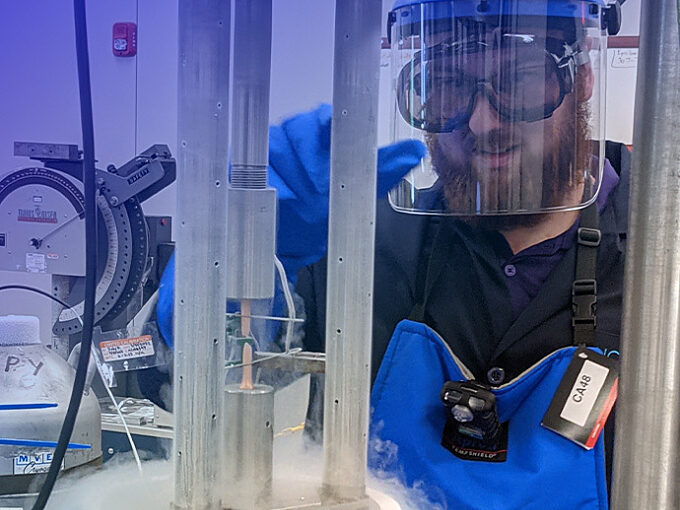Cryogenic and High Temperature Mechanical Testing for the Space Industry
Cryogenic and high temperature mechanical testing is a key technique used to understand the behaviour of materials and assess mechanical properties in real-life operating conditions.
The lack of extreme temperature engineering data, coupled with the demand for novel materials to increase applications, is driving the need for extreme temperature testing.

If you need more from your testing partner than a lab that only performs standard methods, or lacks the experience to validate custom methods and effectively analyse data to understand your materials, then talk to our experts.
Our expertise enables us to understand the challenges of simulating realistic loading conditions. The extreme temperatures and environments in which materials are designed to perform can reveal numerous issues when evaluating their properties. Our extensive experience, combined with our ISO 17025 and Nadcap-compliant capabilities, means we are able to use customised and standard loading configurations to test materials.
What makes us different?
At Lucideon, we use our material science knowledge and experience to provide insights, not just numbers and test results. We have been analysing the mechanical properties of materials for over 70 years through customised and standard test methods. We can help you to reduce resource usage by working together and acting as an extension of your team and capabilities, to develop test programs and resolve any problems.
We have a wide range of mechanical testing capabilities including:
Cryogenic (-196°C / -321°F to ambient)
- Tensile
- Low cycle fatigue (LCF) and high cycle fatigue (HCF)
- Fracture toughness
Elevated (ambient to 1,650°C / 3,002°F)
- Tensile
- LCF and HCF
- Thermomechanical fatigue (TMF)
- Fracture toughness
- Charpy impact
- Bend testing
- Compression
- Creep
- Flexural strength
- Shear strength
- Stress rupture
- Poisson's Ratio
